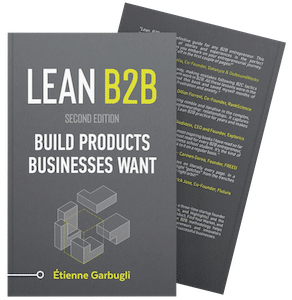If prospects bought too fast, it means it wasn’t expensive enough. If prospects didn’t want to buy, it might mean it was too expensive. – Andre Gilbert, B2B Sales Veteran
Great — you were able to convince the stakeholders to sign on. Now, you need to agree on the terms and write the agreement. How would they like you to write the deal?
To be able to scale, you want all agreements to be similar if not exactly the same, but at this point, having different deals is still manageable.
You can decide to finalize the deal in a subsequent meeting, but running through the details while it’s still fresh is generally a good idea — emotion will play its part.
There are a few things that you need to find out before writing the proposal:
- Date: When would the pilot/product need to be delivered?
- Users: What user groups/departments will benefit from the deal?
- Budgets: Whose budget will the funds come out of?
- Payment: Will they pay by check before any work gets done, will payment be dependent on reaching certain milestones or will they sign a contract to purchase upon a successful pilot?
- Evaluation of value: How will the value of the product be evaluated?
- Endorsements: Would they feel comfortable taking at least one call a month, would they be willing to allow you to write a case study about this or would they provide another kind of endorsement?
- Discount: Provided there’s some form of endorsement built into the agreement, what kind of kickback are you giving?
- Approval process: After the initial OK has been given, how does the decision process work? What is the schedule of the meetings where your proposal needs to be discussed? What could make the money go away?
Once you have a working agreement in place, you can prepare the proposal. At this point, even with your best efforts, it’s still possible for the deal to fail. If it does, re-visit your buying influencers and negotiate some more; you’re almost at the finish line.
Don’t celebrate until the ink has dried. A client is not a client until money has been transacted.
Download the First 4 Chapters Free
Learn the major differences between B2B and B2C customer development, how to think about business ideas, and how to assess a venture’s risk in this 70-page sampler.
Working on a B2B Startup?
Learn B2B customer development with our free email course:


